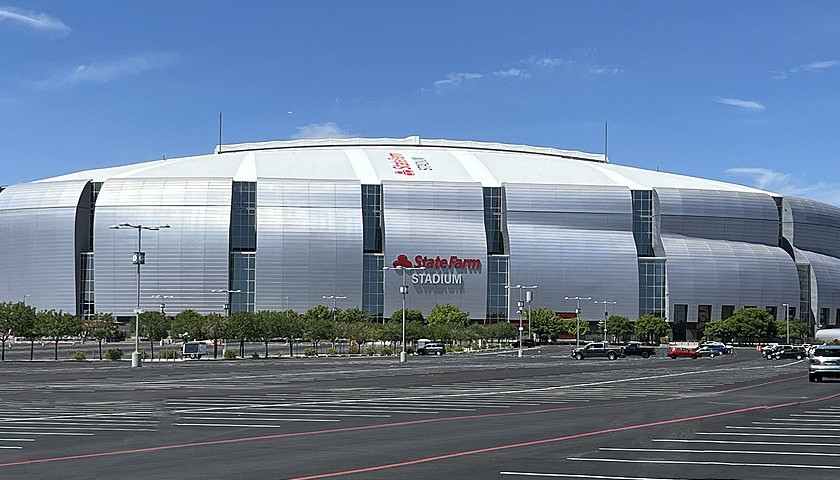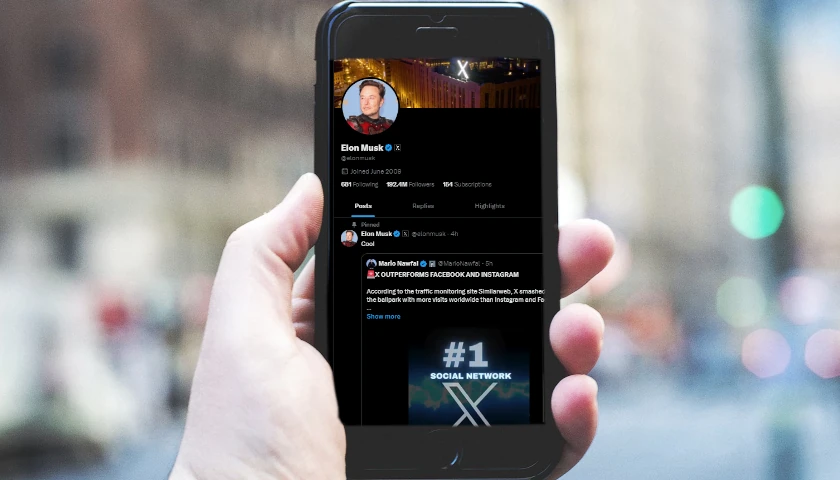Arizonan Bramley Paulin has achieved victory in a free-speech lawsuit against the City of Phoenix which had allowed the National Football League (NFL) and Arizona Super Bowl Host Committee (ASBHC) to decide what signs residents could or could not display in a part of the City.
“This ruling is a huge victory for Bramley’s rights. Thanks to today’s order, Bramley will be able to exercise his free speech rights without unconstitutional restrictions on what he can and cannot say,” said Goldwater Institute Staff Attorney John Thorpe in a statement emailed to The Arizona Sun Times.
Victory!⁰⁰The city of Phoenix and the #NFL tried to censor citizens' free speech on their own property in the weeks leading up to the #SuperBowl. But Goldwater just came out on top—defending Phoenicians’ constitutional rights.⁰⁰Read about our W here: https://t.co/f5JrcKPC5e
— Goldwater Institute (@GoldwaterInst) February 2, 2023
The GI represented Paulin in this issue, which began in early January when the GI sent a letter to the City of Phoenix alleging it violated citizens’ rights by enacting a Special Promotional Civic Event Area or “clean zone.” This zone was created through Resolution 22073, which required anyone within the clean zone to get permission from the NFL and ASBHC to display any “temporary signage” until after the Super Bowl. The GI shared that Paulin had attempted to make a deal with Coca-Cola to display advertisements on his Phoenix property, but his offer was denied because his property fell within the clean zone.
The GI eventually filed a lawsuit, arguing that the City was censoring free speech and unlawfully delegated private entities, the NFL and ASBHC, authority over Arizonans’ rights. The GI achieved a temporary victory that prohibited Phoenix from enforcing the rule. Following the lawsuit, the Phoenix City Council passed Resolution 22095 on January 25th, eliminating the NFL and ASBHC’s authority over sign approval.
However, according to the ruling by Superior Court Judge Bradley Astrowsky, even after the City made the change, Paulin still could not display signs. On January 24th, Paulin presented two temporary sign applications for his property to David Williams of the City’s Planning and Development Department. Yet, Williams later emailed Paulin, stating that his applications could not be considered until he obtained a use permit. Williams testified that getting a use permit could take multiple weeks, which would be after the big game. Paulin’s only other option was to get permission from the ASBHC to use their permit.
The GI said this put Paulin back to square one, relying on a non-government entity, the ASBHC, to get approval to practice his first amendment rights and display a sign on his property. Therefore, Paulin filed another complaint and went to trial Wednesday, arguing that the new resolution was unconstitutional in its application. He requested the court order Phoenix to “immediately approve” his signage applications.
The City opposed this request, alleging that the Plaintiff could not get signs approved due to his own delay in applying. However, the Court ultimately sided with Paulin.
“In summary, the City created the need for this litigation by enacting an unconstitutional resolution. They further exacerbated the problem, by only choosing to remedy their error when it was too late for Plaintiff to apply to exercise his right to speech,” as written by Astrowsky.
The Court did not order the City to approve the applications but said it must consider them in a “content-neutral way” within the next 48 hours.
However, this victory only applies to Paulin and does not force the City to stop enforcing Resolution 22095. Still, a spokesperson for the GI told The Sun Times that if any other residents or businesses in the clean zone run into trouble getting signage approved, they should reach out to the institute.
– – –
Neil Jones is a reporter for The Arizona Sun Times and The Star News Network. Follow Neil on Twitter. Email tips to [email protected].
Photo “Statefarm Stadium” by Troutfarm27. CC BY-SA 4.0.





